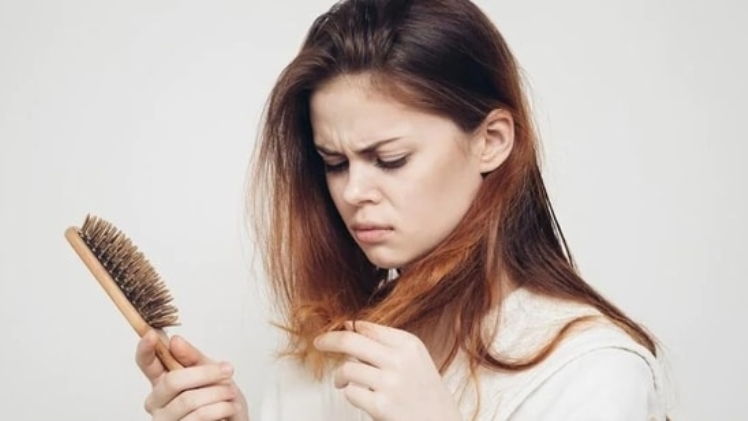Hair Loss and Mental Health

Women with hair loss often suffer from depression. However, there are several other factors that can cause this condition. These include Trichotillomania, stress, and anxiety. Read on to learn more. You may also suffer from an issue with your relationship. Regardless of the cause, it is important to seek treatment for your hair loss.
Stress
Chronic stress can affect the health of your hair follicles. Researchers have found that a hormone called stress impairs the growth of stem cells in hair follicles in mice. Their findings suggest potential treatments for hair loss caused by chronic stress. In addition to hair loss, chronic stress is linked to a variety of health problems, including depression, anxiety, sleep issues, and digestive problems.
Exposing your body to long-term stress can alter hormone levels in the body, including cortisol and other stress hormones. These fluctuations affect hair follicles, leading to hair loss. Studies suggest that stress causes more hair loss than genetics and aging alone. In extreme cases, hair loss caused by stress can be more rapid and dramatic than other causes.
Trichotillomania
Trichotillomania is a condition that can affect people’s hair loss and mental health. Treatments for trichotillomania typically involve behavioral therapies, which have a strong evidence base. Your doctor may recommend a therapist specializing in trichotillomania. They can prescribe medications that can reduce the symptoms of trichotillomania. Therapy can also help you cope with the symptoms of trichotillomania and improve your overall quality of life.
Among the treatments for trichotillomania are habit reversal training and cognitive therapy. These therapies teach people new behaviors that replace the urges to pull hair. A common method of habit reversal training is known as decoupling, which involves redirecting the hand from the hair to a different location. Cognitive therapy can also help people identify and change distorted beliefs that lead to hair pulling.
Depression
There’s a strong connection between depression and hair loss. Lack of sunlight during the winter months can lead to Seasonal Affective Disorder, which affects ten million Americans. Hair loss and depression are common side effects of this disease. A physician can properly diagnose depression based on the patient’s symptoms, including their history, physical examination, and blood tests to rule out other health conditions.
Research is still limited when it comes to connecting hair loss and depression, but depression can affect both physical and mental health.
Anxiety
Anxiety and hair loss are two conditions that may go hand in hand. If you suffer from either one, you should consult your doctor as soon as possible. While anxiety and hair loss may not be connected, some people find that they experience more hair loss than usual. Anxiety is a natural reaction to stressful or unfamiliar situations. People with anxiety disorders often experience similar triggers and their symptoms can interfere with their everyday lives.
In an effort to treat anxiety and its symptoms, you should consult your family doctor or mental health specialist. These professionals can help you understand the root causes of your anxiety and recommend treatments to help you manage it. In addition, you should do regular exercise and eat well. Both of these measures can improve your health and help your hair grow.
Social phobia
Prescription medications can be an effective treatment for social anxiety disorder, reducing or eliminating the uncomfortable and embarrassing symptoms. However, some people may not respond to certain types of medications and will need to try several different ones before finding the right one. There are four medicines that are approved by the FDA for the treatment of social phobia.
A variety of factors can contribute to the development of social anxiety disorder. Some of them include genetics, stress, and overbearing parents. Some people are more likely to develop social anxiety than others. In addition, a history of abuse, bullying, or overbearing parents is associated with increased social anxiety. In severe cases, a person may suffer from a physical condition that can trigger the condition.
